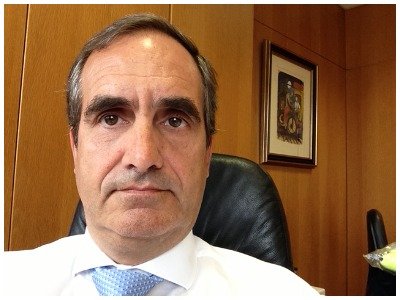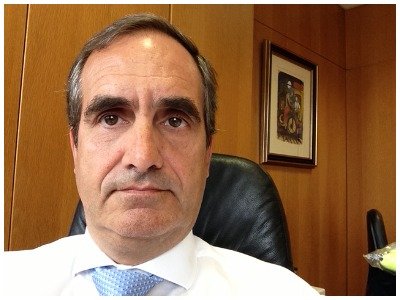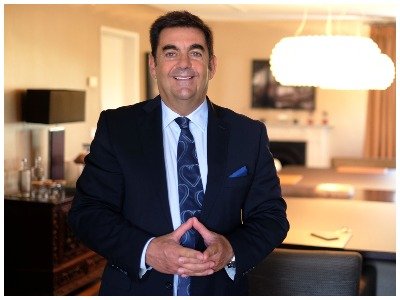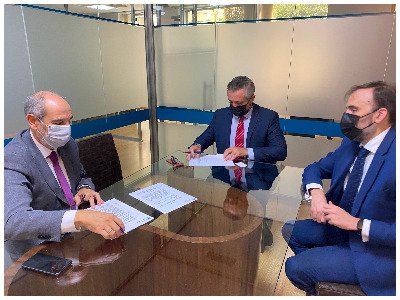Road to success

In April 2020, a consortium consisting of APG Asset Management, the National Pension Service of the Republic of Korea and Swiss Life Asset Managers, acquired an 81.1 per cent majority stake in the Portuguese toll road operator Brisa, for €3 billion. At the heart of this deal was Brisa’s corporate secretary Tiago Severim Melo. The lawyer has been with the company for over 20 years and in that time has seen it grow to the ubiquitous infrastructure presence it has today. It is now one of the largest international highway operators and the largest transport infrastructure company in Portugal. Iberian Lawyer had the peasure of interviewing Severim Melo, who provided insight into his career to date, the challenges his team faced during the merger negotiations, and where he sees some law firms failing in their approach to capture new cients.
 Can you summarise the last 18 months and the impact that COVID-19 has had on Brisa?
Can you summarise the last 18 months and the impact that COVID-19 has had on Brisa?
The pandemic didn’t affect Brisa too much in the sense that regardless of the heavy traffic reduction we had a contractual obligation to fully operate and maintain all of the concession’s highways. In operational terms we kept doing the same thing, obviously with some adjustments due to the pandemic situation. Therefore, cutting operational costs was not an obvious option. Nevertheless, operational teams were reorganised and rescheduled in order to prevent covid infection at work and we were quite successful in that. Another thing to have in mind is the fact that in spite of the drop of operational results due to the traffic reduction, salaries were not in any way cut or reduced. Fortunately traffic is now recovering. We took the opportunity of having most of the employees working from home, to make a big renovation change at our head office, the Brisa campus, to ensure all of our employees could work from there, bringing all of our teams together. We have also re-organised a number of entities within the Brisa group to make things more efficient and for all of us to have a fresh start. And of course we had the long process of developing a new strategic plan with our new shareholders that acquired a majority stake of the business in April 2020 at the very beginning of the Covid-19 pandemic.
Since Brisa was acquired in April 2020, how has that process been for the in-house legal team?
In terms of the sale process, the internal legal team had a huge challenge regarding the due diligence process. It was an enormous task for us. When you have so many lawyers involved from different entities during this process, it is very complicated. Most of the information provided in this process is necessary but not always useful to the potential buyers as you are just box ticking. The business of Brisa is very clean and clear, we are not a conglomerate with lots of different activities. It is a very straight forward business model. Since the new shareholders have acquired Brisa, a new strategic plan was defined with a clear vision for the company’s future, where we should be, and what our goals are. It is not a disruptive vision and it is clear that while it’s business as usual, we want to grow more outside of Portugal. Another positive outcome is that they know the team is doing well and winning but they want to do more and have bigger aspirations in financial terms. They are keen to leverage Brisa’s capacicities to drive business externally and elsewhere. We have already some contracts in the US that we want to grow more.
Why did you decide you wanted to become a lawyer?
I was not very good with numbers so the humanitiy subjects were a natural choice for me. At around the age of thirteen I decided I wanted to become a lawyer. I realy enjoyed studying law and the intellectual challenge and stiumulation at University. It was always a great pleasure. I was one of the founders of the youth division of the CDS – Partido Popular (People’s Party). The party had a foundation that was funded from Germany and they created an institute to support municipalities, so at University I started working for this foundation assisting different municipalities in Portugal. I have been fortunate in my career to work in a number of different areas, but everything was rooted in Public Law from my student days. My first major role early on in my career was working in-house. I then went to work in-house for a media company. I don’t know if it still exists, but in those days there was only one TV station which was RTP. It is a state‑owned TV channel and they had a commercial company that dealt with all the commercial aspects and I worked on the legal aspect of everything from merchandising to royalties. They were very interesting and challenging times. I even remember participating in meetings where we would be sitting around a huge table discussing ideas for programmes for the coming month! I then had the opportunity to work for the government in Macau for two years which was a really interesting experience.
What changes have you seen in the legal market in the way law firms communicate with GCs?
I have seen a lot of changes. I come from a time when the main goal for a lawyer was to solve the client problems. This followed me from my time as a student to practicing Law and working in-house. I would say that now among the big law firms in Portugal, things have become quite the opposite. In the late 1970s, early 1980s, there was no such thing as a big law firm in Portugal. They were all small offices, boutiques if you like. They really cared about the client and it was rather a personal relationship. But since the big Law firm structures have been created and grown, I think this relationship suffered and they cared more about the business than the client. I do feel that now we have come a bit full circle and some firms are starting again to really care about the excellent customer service.
How is the legal tech evolution impacting your organisation and your relationship with external advisors?
I haven’t seen a big impact so far. Sharepoint makes it a lot easier to share documents with data rooms and that sort of thing, but so far I haven’t seen a big change.
What is your biggest frustration when working with external law firms?
The biggest frustration I have is the difficulty in communicating. The firms either don’t understand, don’t listen, or keep pushing solutions and alternatives that we don’t want. Many years ago in a very relevant company in Portugal I was a project manager. We had decided to outsource the IT systems and all the hardware and employees, and we started the process and had meetings with the board of that company and the companies interested to provide the new services. One of these firms said they were the ones who knew what the company needed. Sometimes with law firms we have the same feeling. They do not always care about our needs and thoughts. This is the most frustrating thing.
When was the last time a law firm really impressed you?
It was a law firm that was involved during the transaction of Brisa and they tried to make an approach to develop more work with us and they made a more personal approach, to show that they are different and really interested in the client and solving the client’s problems. They already had the knowledge about us that most firms didn’t have. Most law firms are more interested in solving their own problems than client problems. This was a very pleasant surprise. My advice to law firms is to make a tailored and personal approach and not come in to meet us with a 50 page power point presentation.
If you could go back in time and give your younger self career advice, what would you say?
Forget practicing law in a firm. I worked as a litigator and while I enjoyed the work very much, I was very disappointed with our judicial system. It was a very frustrating environment to work in. My real success and enjoyment has come from working as an lawyer in-house, but make no mistake, do not think that working in-house is to become just an employee. You always have to keep your intellectual independence, that’s the only way to provide a good service as an in-house lawyer.
By Michael Heron
To read the full interview on issue number 108 click here












